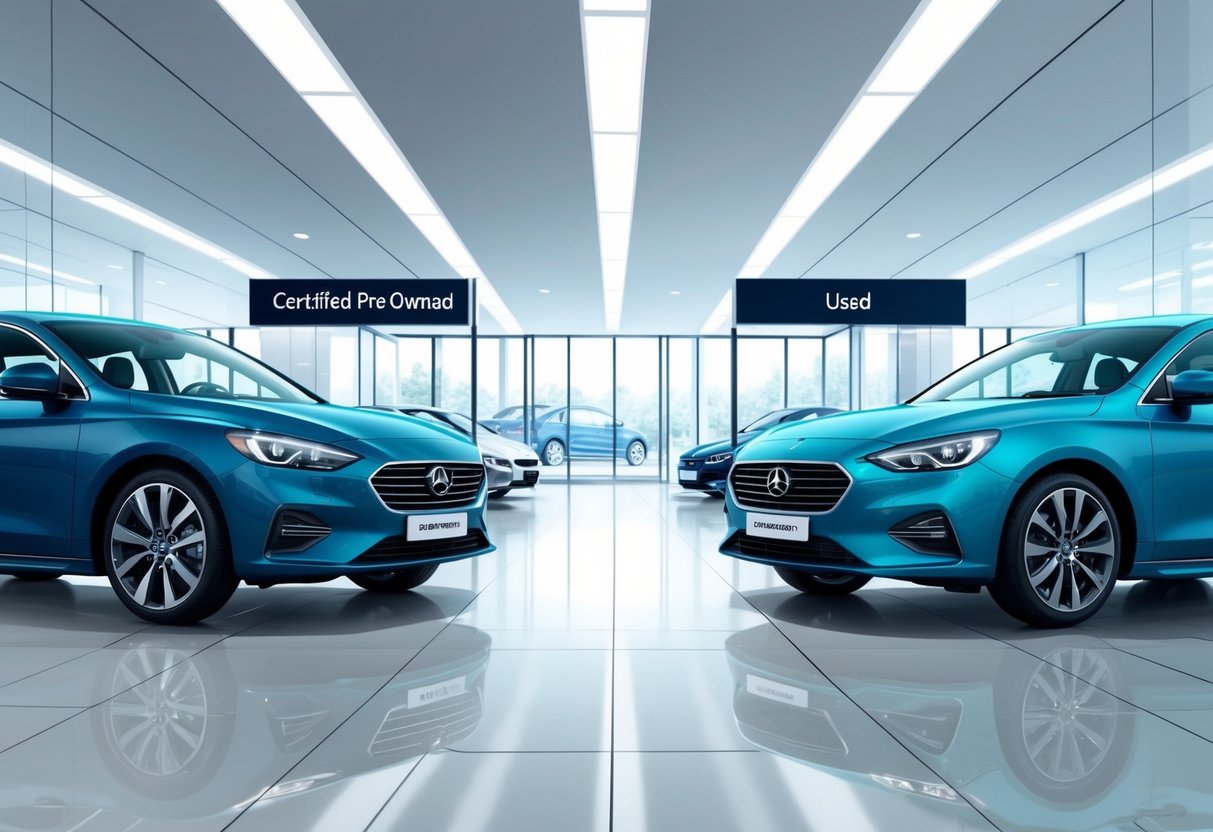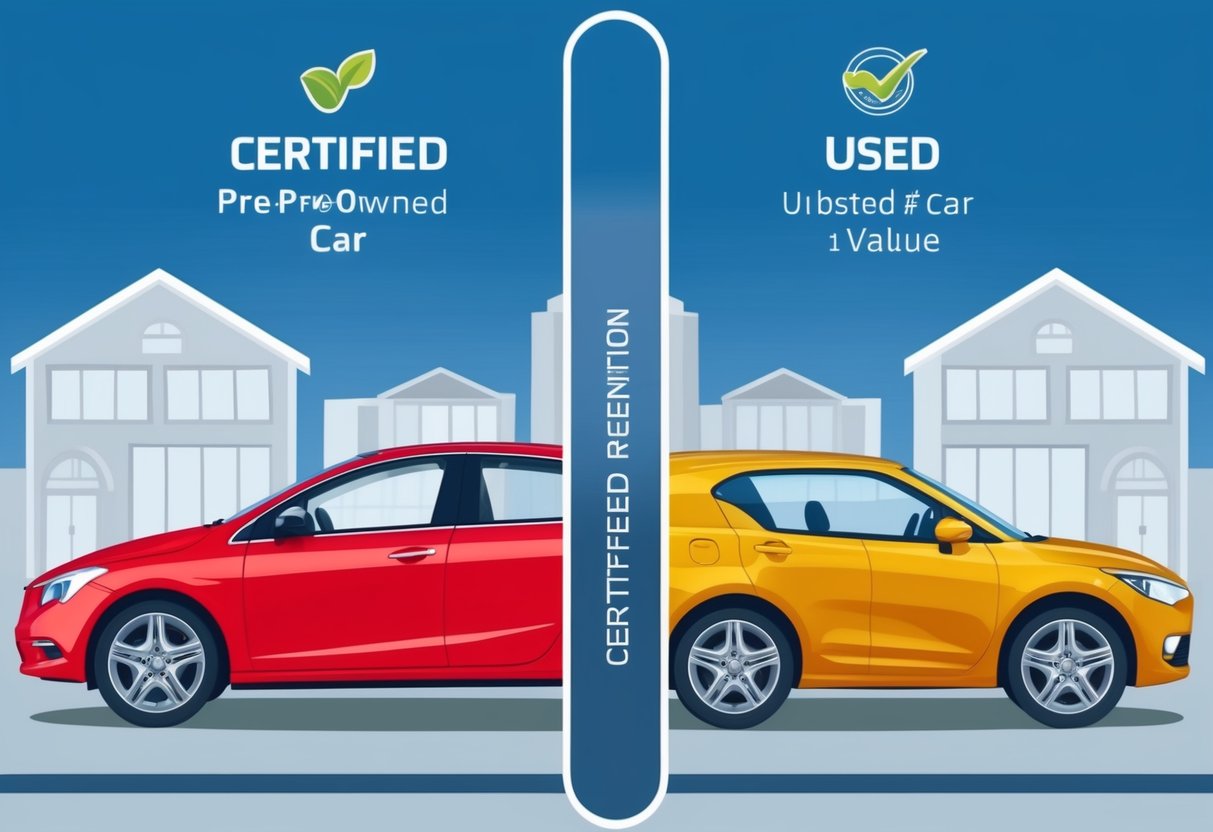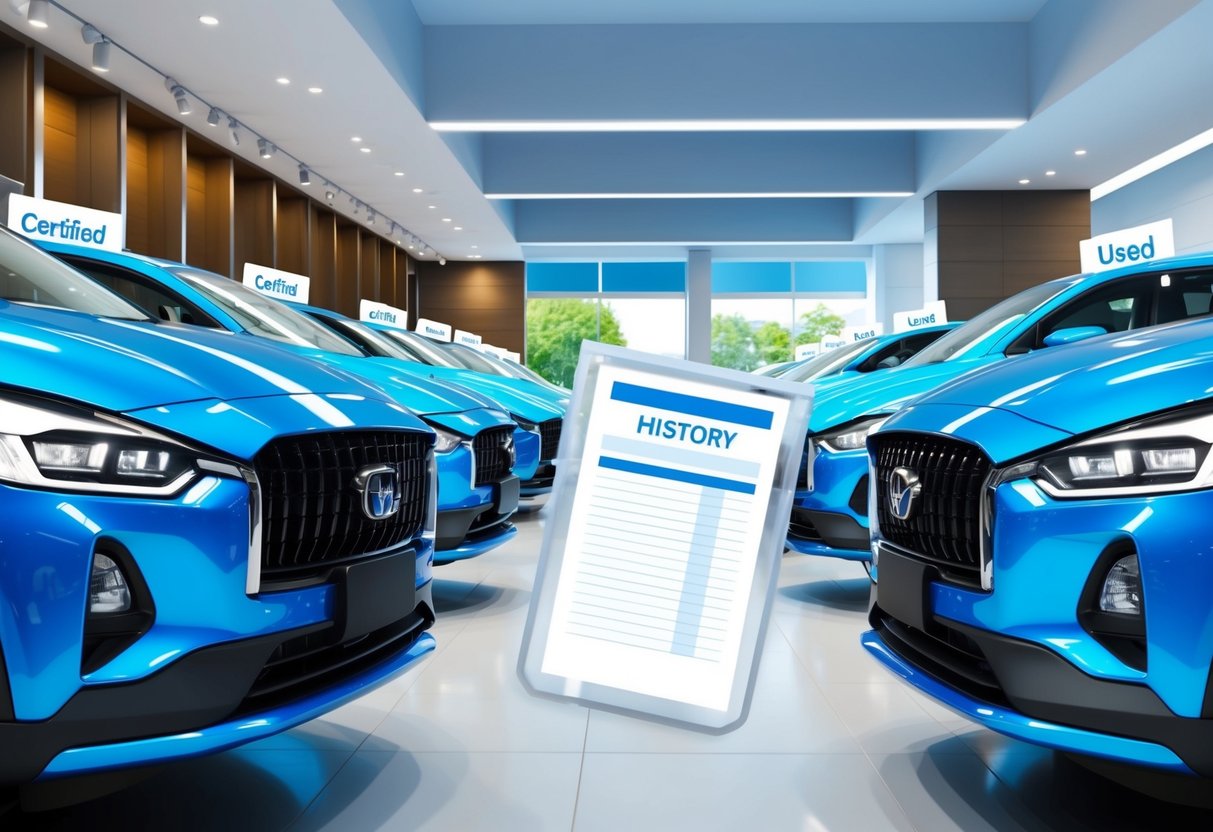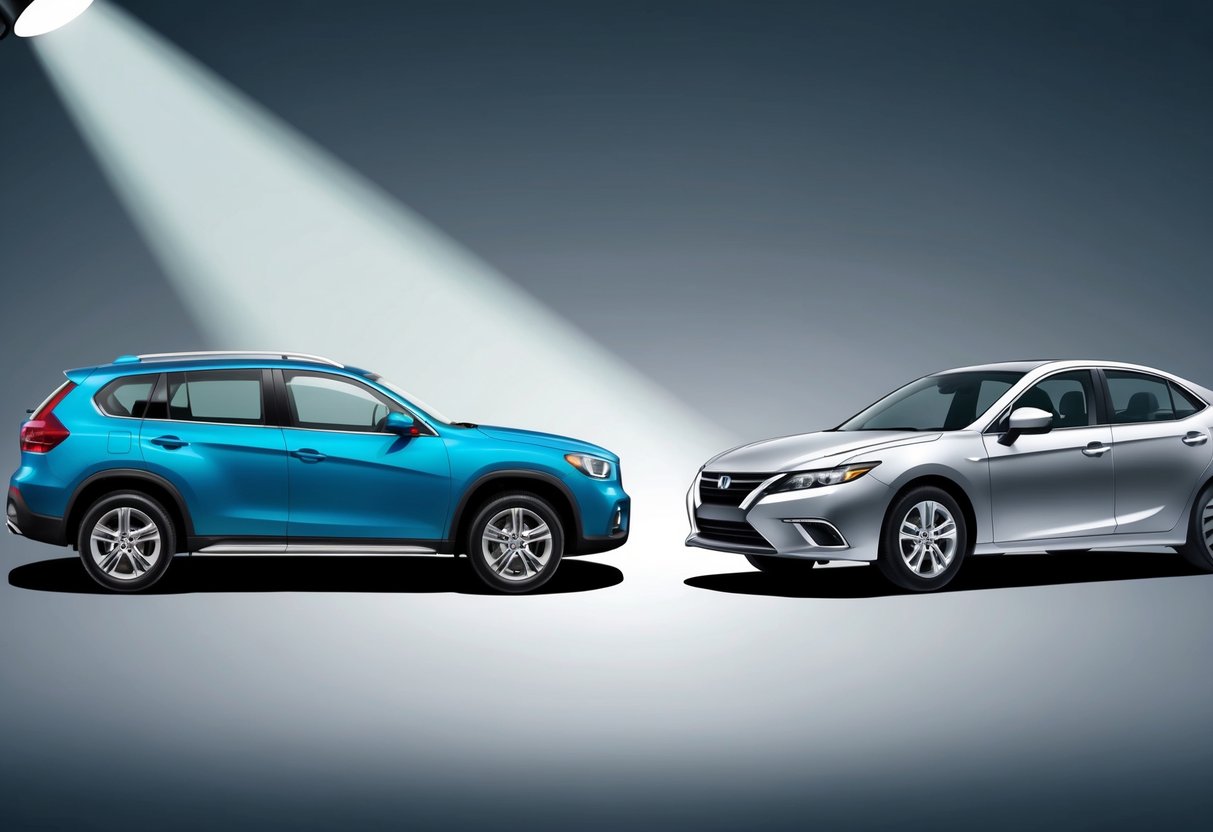
Depreciation and Value Retention

Depreciation is one of the largest factors influencing the cost of car ownership.
Understanding how different types of vehicles lose value over time can help buyers make smarter financial decisions.
How Depreciation Affects Car Value
All vehicles lose value the moment they are driven off the dealership lot, but the rate and amount of depreciation varies widely.
New cars experience the steepest initial loss, sometimes dropping as much as 20% to 30% in value within the first year.
This rapid decrease can be a significant cost for new car owners.
Used cars, particularly those several years old, have already taken their biggest depreciation hit.
This means they lose value more slowly during the remainder of their service life.
Certified pre-owned cars fall between new and standard used vehicles; while they often cost more than typical used cars, they retain value better due to strict inspection standards and warranties, as supported by Jones Ford’s explanation of CPO resale value.
Slower depreciation also tends to translate to lower insurance costs and better resale value.
New vs Pre-Owned Depreciation Curves
The depreciation curve for new cars is much steeper in the early years compared to pre-owned vehicles.
On a typical depreciation timeline, the first three years are where the most value is lost for new cars.
For example, a new vehicle bought at $30,000 might be worth only $21,000 after two years.
In contrast, used cars, including many certified pre-owned vehicles, experience more gradual depreciation.
After the initial sharp drop in value, the rate of depreciation slows, so buyers of these vehicles are less likely to suffer large value losses quickly.
This is demonstrated by data suggesting CPO cars often hold value better than standard used vehicles.
Vehicle History and Transparency

Understanding a car’s background helps buyers avoid unwanted surprises and additional costs.
Choosing between certified pre-owned and non-certified used vehicles often comes down to how much information the buyer receives and the reliability of vehicle history disclosures.
Vehicle History Reports
A vehicle history report is a critical tool for car buyers.
These reports provide records of mileage, accidents, service history, title status, and previous ownership.
Certified pre-owned vehicles almost always include a full history report, often from reputable services like Carfax or AutoCheck.
Manufacturers or dealers use these reports as part of their strict inspection process.
In contrast, non-certified used cars may offer a history report, but it is not guaranteed.
Buyers may need to purchase or request this information themselves, making it important to review the report for signs of salvage, major repairs, or odometer discrepancies.
Having access to comprehensive history reports can prevent buying a vehicle with hidden issues.
For many buyers, this extra transparency gives CPO cars an edge in terms of peace of mind and value.
Many CPO programs boast vehicles with 14 percent fewer problems than standard used vehicles.
Disclosure Requirements
Certified pre-owned programs must follow strict manufacturer or dealer guidelines.
They require full disclosure of the vehicle history, inspection details, and any known issues before the sale.
By law, used vehicle sellers in most regions must disclose basic information about issues such as major accidents or flood damage, but the rules for non-certified used cars are not as comprehensive.
Some private sellers may not fully disclose a car’s background or repairs.
CPO vehicles come with detailed inspection checklists and transparency around any replaced parts or prior repairs.
Non-certified used cars, sold privately or by independent dealers, may have gaps in disclosure, which increases risk for the buyer.
Risks with Non-Certified Used Cars
Purchasing non-certified used cars comes with certain risks due to limited or incomplete transparency.
Without the backing of a manufacturer-certified process, buyers face higher chances of hidden damages or costly repairs.
A non-certified used vehicle may have been in an accident, had major repairs, or even suffered flood damage that does not appear in basic ads or casual inspections.
There are fewer guarantees of quality assurance compared to certified options.
CPO vehicles usually undergo multi-point inspections to catch hidden problems before the sale.
Used cars sold outside these programs lack this extra layer of oversight, which may lead to unexpected expenses for buyers.
For those prioritizing reliability and verified history, certified pre-owned vehicles often provide more security and a clearer picture of a car’s past.
Ownership Experience and Peace of Mind

Choosing between a certified pre-owned (CPO) vehicle and a traditional used car can shape key aspects of ownership.
Coverage features, customer support programs, and flexibility all impact the overall satisfaction with a vehicle purchase.
Roadside Assistance Benefits
Certified pre-owned vehicles often include complimentary roadside assistance.
This coverage may last the duration of the CPO warranty and can cover services such as towing, flat tire changes, jump starts, fuel delivery, and lockout assistance.
This added benefit reduces out-of-pocket costs and minimizes anxiety during emergencies.
Regular used cars from independent sellers or non-certified dealers rarely come with roadside coverage.
Buyers might need to purchase an outside plan for similar peace of mind.
With CPO cars, owners can feel more secure knowing help is available at any time, which is especially appealing for those who frequently travel or commute.
Drivers can compare different automakers’ CPO programs to see how long the roadside features last and what specific services are included.
This detail sets CPO vehicles apart from most used vehicles, giving drivers one less thing to worry about if a breakdown or other mishap occurs.
After-Sale Support
After the sale, certified pre-owned car owners typically receive stronger support.
Dealerships offer warranty-backed service, guaranteed repairs with factory-approved parts, and easy access to authorized service centers.
This level of after-sale support streamlines maintenance and repairs, reducing hassle and unexpected costs for the owner.
Traditional used vehicles may not come with any manufacturer support.
Buyers are responsible for finding reliable service and covering all repair costs out of pocket.
Some larger used car lots may offer short-term warranties or service contracts, but these don’t match the comprehensiveness or convenience seen with most CPO cars.
Owners of certified pre-owned vehicles have access to direct customer service hotlines and support teams, further enhancing confidence in case of mechanical issues or questions about vehicle performance.
This infrastructure ensures a smoother ownership experience.
Return and Exchange Policies
Return and exchange policies vary widely between CPO and used vehicles.
Many certified pre-owned programs offer a limited window (such as 3-7 days or up to 500 miles) during which buyers can return or exchange their vehicle with minimal hassle.
This option provides added confidence, ensuring the car meets expectations once driven daily.
Used cars bought through private parties or many independent dealers generally do not come with any return privilege.
Once the purchase is finalized, all responsibility transfers to the buyer.
Larger franchise dealers selling regular used cars might provide very short-term return periods, but these are less common and often more restrictive than CPO policies.
With a well-documented return or exchange policy, CPO buyers benefit from a trial period that reduces the risk of buyer’s remorse or unanticipated issues.
Knowing there’s an option to reconsider can make the car-buying experience much more comfortable and reassuring.